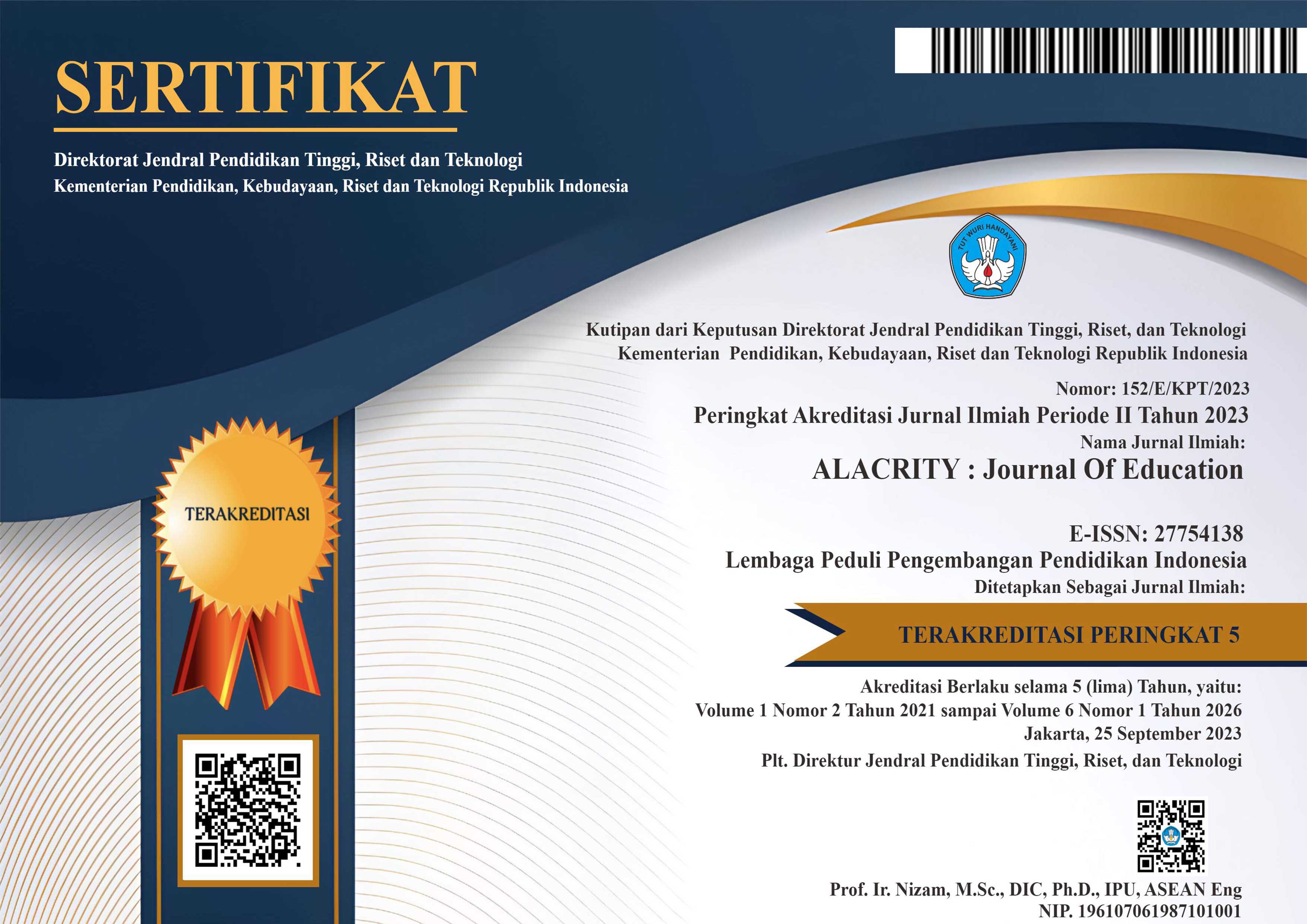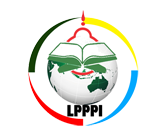Influence of KWL Strategy and Reading Habit on Students’ Reading Comprehension Achievement
DOI:
https://doi.org/10.52121/alacrity.v5i2.846Keywords:
Reading Habit, Strategy, InfluenceAbstract
This research aimed to examine the significant influence of KWL (know-want-learn) strategy and students’ reading habits on the reading comprehension achievement of eighth-grade students at Salsabila Islamic School Palembang. The study adopted a quantitative approach using an experimental method with a factorial design. The population comprised 120 students from four eighth-grade classes in the academic year 2024–2025. A total of 60 students were selected as the sample through purposive sampling, divided equally into two groups: 30 students in the experimental group and 30 in the control group. Data were collected using two primary instruments: questionnaires and reading comprehension tests. The questionnaire, distributed during both pre-test and post-test phases, aimed to measure students’ reading motivation. The comprehension tests consisted of 25 multiple-choice questions with four answer options, administered before and after the treatment. The experimental group received instruction using the KWL strategy, while the control group was taught through conventional methods. The data analysis involved paired sample t-tests, independent sample t-tests, and two-way ANOVA, all processed using SPSS version 23. The results of hypothesis testing showed that all p-values were below the 0.05 significance level, indicating statistically significant differences. Consequently, all alternative hypotheses were accepted, and the null hypotheses were rejected. The findings indicate that the KWL strategy significantly enhances students’ reading comprehension. In addition to improving comprehension scores, the strategy also increased student engagement and learning motivation. These results support the integration of KWL as an effective instructional technique in English language teaching, particularly in developing reading proficiency among junior high school students.
Downloads
Published
Issue
Section
License
Copyright (c) 2025 Riska Fitriani, Tahrun Tahrun, Masagus Firdaus

This work is licensed under a Creative Commons Attribution-ShareAlike 4.0 International License.













